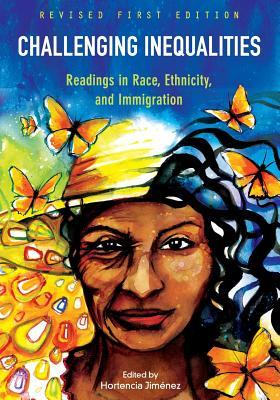Challenging Inequalities: Readings in Race, Ethnicity, and Immigration offers a fresh perspective on current research by examining the histories and historiographies of racism on both the micro (individual) and macro (institutional) levels. The anthology highlights the ways in which race is and has long been structured in social institutions, as well as the various ways in which institutional systems maintain and perpetuate such social inequalities.
Featuring writings not only from pioneers in this field of study, but also from more recently established and emerging scholars, the anthology draws from diverse disciplines including ethnic studies, history, educational leadership, communication, Native American studies, Latinx studies, and creative writing. The contributing authors have been on the frontlines, teaching on topics that exemplify the very reasons why race and ethnicity still matter so deeply as the longstanding results of conquest, slavery, and migration. These educators, in many cases, have also been involved on the ground, serving as grassroots advocates in their communities and in the world at large.
Intended for undergraduate audiences, Challenging Inequalities is conceptually and theoretically informed, yet accessible in style and tone. Its fresh combination of academic rigor and personal perspectives is rooted in the call to activism and is well suited to courses in ethnic studies, sociology, race and ethnicity, counseling, and education.
Hortencia Jimnez earned her Ph.D. in sociology from the University of Texas, Austin. Dr. Jimnez has been a faculty member in the Department of Sociology at Hartnell College since 2010. Her writing has appeared in Latinos Studies, the Journal of Immigrant and Refugee Studies, Social Problems, Community College Moment, and Chicana/Latina Studies: The Journal of Mujeres Activas En Letras y Cambio Social. Dr. Jimnez' more recent collaborative work centers on the experiences of student parents at the community college level. Her forthcoming co-authored chapter will be feature in The Chicana M(other)work Anthology: Porque Sin Madres No Hay Revolucin (University of Arizona Press).
